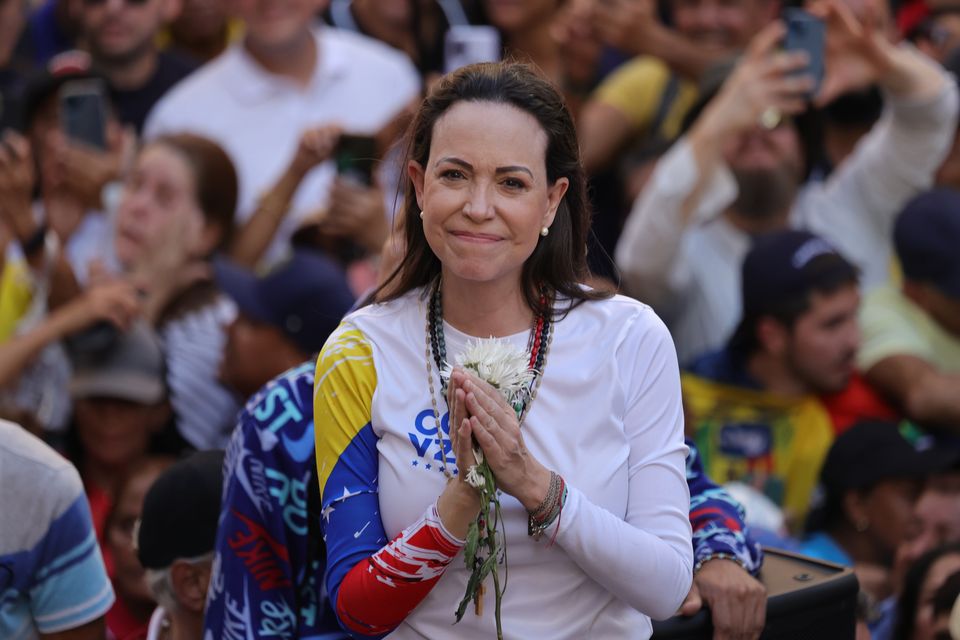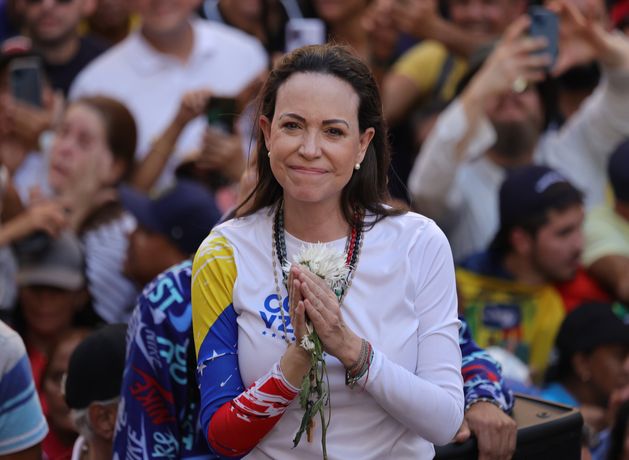The former opposition presidential candidate in Venezuela was lauded for being a “key, unifying figure in a political opposition that was once deeply divided — an opposition that found common ground in the demand for free elections and representative government,” said Jørgen Watne Frydnes, chair of the Norwegian Nobel committee.
“In the past year, Miss Machado has been forced to live in hiding. Despite serious threats against her life, she has remained in the country, a choice that has inspired millions. When authoritarians seize power, it is crucial to recognize courageous defenders of freedom who rise and resist.”
There had been persistent speculation ahead of the announcement about the possibility of the prize going to U.S. President Donald Trump, fuelled in part by the president himself, amplified by this week’s approval of his plan for a ceasefire in the Gaza Strip.
Experts say the committee typically focuses on the durability of peace, the promotion of international fraternity and the quiet work of institutions that strengthen those goals.
Last year’s award went to Nihon Hidankyo, a grassroots movement of Japanese atomic bombing survivors who have worked for decades to maintain a taboo around the use of nuclear weapons.
The peace prize is the only one of the annual Nobel prizes to be awarded in Oslo, Norway.
Four of the other prizes have already been awarded in the Swedish capital, Stockholm this week — in medicine on Monday, physics on Tuesday, chemistry on Wednesday and literature on Thursday. The winner of the prize in economics will be announced on Monday.
The year had been overshadowed by a months-long campaign by US President Donald Trump to win what is arguably the world’s most prestigious award.
Trump has been outspoken about his desire for a prize won by four of his predecessors – Barack Obama in 2009, Jimmy Carter in 2002, Woodrow Wilson in 1919 and Theodore Roosevelt in 1906. All but Carter won the award while in office, with Obama named laureate less than eight months after taking office – the same position Trump is in now.
The foundation the Norwegian Nobel Committee follows as its basis for decisions is the 1895 will of Swedish industrialist Alfred Nobel, which established the Peace Prize alongside those for literature, chemistry, physics and medicine.
Nina Graeger, head of the Peace Research Institute Oslo, said Trump withdrawing the United States from the World Health Organization and the 2015 Paris climate accords, and his trade war with allies, went against the spirit of Nobel’s will.
“If you look at Alfred Nobel’s will, it emphasises three areas: one is the achievements regarding peace: brokering a peace deal,” she said. “The other is to work and promote disarmament and the third is to promote international cooperation.”
Asle Sveen, a historian of the award, cited Trump’s attempted rapprochement with Russian President Vladimir Putin, among other reasons.
“His admiration of dictators counts also against him,” Sveen said. “This goes against Alfred Nobel’s will.”

Venezuelan opposition leader Maria Corina Machado (Photo by Jesus Vargas/picture alliance via Getty Images)
Today’s News in 90 Seconds – Friday October 10.
Insiders say the award follows a year-long, deliberative process, during which candidates’ strengths and weaknesses are debated by the five-strong committee.
Nominations for the prize must reach the committee by January 31. Committee members can also make nominations but they have to be made by the committee’s first meeting in February.
After that, the committee meets about once a month. The decision tends to be taken in August or in September, but it can also be later, as was the case this year.
The Nobel committee says it is used to working under pressure from people, or their supporters, who say they deserve the prize.
“All politicians want to win the Nobel Peace Prize,” Frydnes, the Nobel committee leader, told Reuters.
“We hope the ideals underpinned by the Nobel Peace Prize are something that all political leaders should strive for … We notice the attention, both in the United States and around the world, but outside from that, we work just the same way as we always do.”

